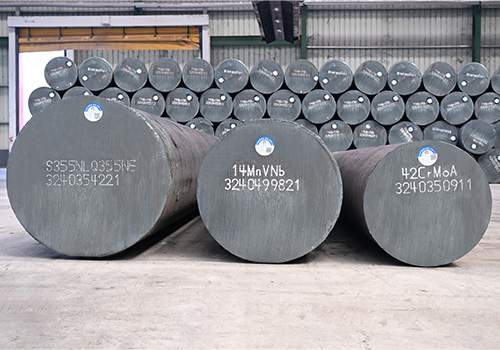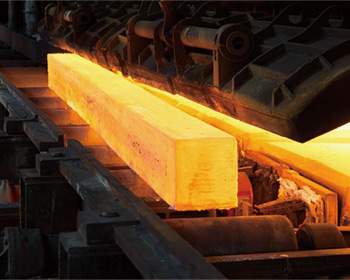
Why Q275 Steel Is Ideal for Heavy-Duty Applications
Table of Contents
Introduction

In the world of heavy-duty industrial and construction applications, the choice of materials is crucial for ensuring safety, durability, and performance. Among the many steel grades available, Q275 steel has gained a reputation for its robust mechanical properties, making it a preferred material in demanding environments. Whether you are building infrastructure, manufacturing equipment, or working in the automotive sector, understanding why Q275 steel is ideal for heavy-duty applications can help you make more informed material choices for your projects.
This article will explore the key properties of Q275 steel, its applications, and why it is considered a top choice for heavy-duty industrial uses. We will also provide a comparison table to highlight the key features of Q275 steel, its strengths, and its limitations compared to other steel grades.
What Is Q275 Steel?
Q275 steel is a medium-carbon steel grade that is primarily used in construction, engineering, and heavy machinery applications. The “Q” in its name refers to its yield strength (in megapascals), while the number 275 indicates its yield strength value, making it a relatively high-strength material. This steel grade is known for its combination of strength, ductility, and ease of fabrication, making it versatile for a wide range of industries.
Q275 steel has good welding properties, resistance to deformation, and excellent hardness, making it suitable for parts and structures subjected to heavy loads and stress. It is commonly used for manufacturing construction beams, structural components, and heavy machinery parts.
Key Benefits of Q275 Steel in Heavy-Duty Applications
High Yield Strength and Durability
One of the standout features of Q275 steel is its high yield strength. With a yield strength of 275 MPa (megapascals), this steel is highly resistant to deformation under pressure, which is essential for heavy-duty applications. Structures and components made from Q275 steel can withstand heavy loads without compromising their structural integrity. This property makes it ideal for use in construction and infrastructure projects such as bridges, high-rise buildings, and heavy-duty equipment.
Excellent Weldability and Fabrication Properties
Q275 steel is known for its superior weldability, which makes it easy to work with during manufacturing processes. Welding is a common process used in the construction of heavy-duty structures and machinery, and the ease with which Q275 steel can be welded ensures that it can be used in complex projects that require strong, durable joints. The steel’s ability to be fabricated into different shapes and sizes without losing its mechanical properties further enhances its utility in industrial applications.
Corrosion Resistance and Longevity
In addition to its mechanical properties, Q275 steel offers good corrosion resistance, which is essential in environments where the material will be exposed to harsh weather conditions or chemicals. The steel is often treated or coated to increase its resistance to corrosion, making it a durable option for outdoor applications, including construction projects and transportation infrastructure.
The combination of corrosion resistance and high durability ensures that Q275 steel components have a longer lifespan, reducing maintenance and replacement costs over time.
Versatility in Applications
Q275 steel is highly versatile and can be used in a wide range of heavy-duty applications, including:
- Construction: Structural beams, columns, and supports for buildings, bridges, and other infrastructure projects.
- Heavy Machinery: Parts such as frames, chassis, and equipment components used in construction, mining, and manufacturing.
- Automotive Industry: Components that require high strength and durability, such as car chassis and structural parts.
- Shipbuilding: Steel plates and parts that need to withstand harsh marine environments.
Its versatility makes Q275 steel an essential material for industries that require durable, high-strength materials for safety-critical components.
Cost-Effectiveness in the Long Term
While Q275 steel may not always be the cheapest option in terms of initial cost, its strength, durability, and resistance to wear and tear make it a cost-effective material in the long run. When you consider the reduced need for repairs and replacements, as well as the improved performance of structures and equipment, Q275 steel provides excellent value for money.
Comparison of Q275 Steel with Other Steel Grades

The following table provides a comparison between Q275 steel and other commonly used steel grades, highlighting the differences in key properties like yield strength, hardness, and corrosion resistance.
| Steel Grade | Yield Strength (MPa) | Tensile Strength (MPa) | Hardness (HB) | Corrosion Resistance | Common Applications |
|---|---|---|---|---|---|
| Q275 Steel | 275 | 430-560 | 150-170 | Good | Construction, machinery parts, automotive, shipbuilding |
| Q235 Steel | 235 | 375-500 | 120-160 | Moderate | General construction, light structures |
| Q345 Steel | 345 | 490-620 | 170-200 | Good | Heavy construction, bridges, heavy machinery |
| A36 Steel | 250 | 400-550 | 130-180 | Moderate | General construction, structural components |
| S355 Steel | 355 | 470-630 | 180-220 | Moderate | Heavy-duty construction, offshore structures |
As the table shows, Q275 steel offers a balanced combination of yield strength, tensile strength, and hardness, making it a strong contender for heavy-duty applications. When compared to other steel grades, it is ideal for applications where high strength and durability are essential.
Conclusion
Q275 steel stands out as an ideal material for heavy-duty applications due to its high yield strength, excellent fabrication properties, and versatility in various industries. Whether you’re involved in construction, machinery manufacturing, or any other field requiring robust materials, Q275 steel offers a reliable and cost-effective solution for demanding projects.
By choosing Q275 steel for your heavy-duty applications, you ensure a combination of performance, durability, and long-term value, making it an excellent choice for both industrial and commercial uses.
FAQ
What makes Q275 steel ideal for heavy-duty applications?
Q275 steel is known for its high yield strength, excellent weldability, corrosion resistance, and versatility, making it ideal for heavy-duty applications such as construction, heavy machinery, and infrastructure.
Can Q275 steel be welded easily?
Yes, Q275 steel is known for its excellent weldability, making it easy to work with during manufacturing and construction processes. It can be welded using standard techniques, ensuring strong, durable joints.
Is Q275 steel resistant to corrosion?
Yes, Q275 steel offers good corrosion resistance. While it can be further treated or coated to enhance its corrosion resistance, it is naturally durable enough for use in outdoor environments and applications exposed to harsh conditions.
What industries use Q275 steel?
Q275 steel is used across various industries, including construction, manufacturing, shipbuilding, automotive, and heavy machinery. Its versatility and strength make it suitable for a wide range of applications.
How does Q275 steel compare to other steel grades?
Q275 steel strikes a balance between strength and cost-effectiveness, offering a good combination of yield strength, corrosion resistance, and hardness. While other steel grades like Q345 and S355 may offer higher strength, Q275 remains an excellent choice for many heavy-duty applications.






